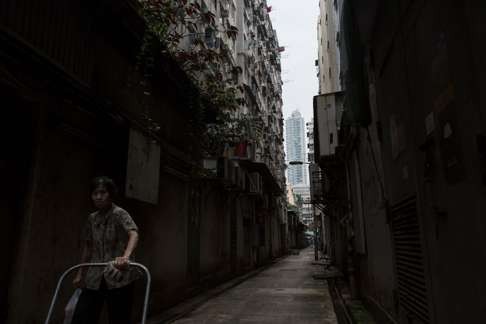
The government is urged to unlock the market
With nearly one third of population to be aged over 65 years in less than 20 years of time, the silver hair market in Hong Kong will create huge opportunities for business across different sectors.
However, the market is yet to be unlocked and challenges lie ahead as the government has not implemented policy initiatives to attract private sector, say industry experts.
“We see the market potential and we are very interested in entering the market. But we cannot find a formula that can make profits,”said Charles Lam, Managing Director, Real Estate at Baring Private Equity Asia .

“I know the demand as I will have fallen into this group by the time,” said Lam.
Lam sees a big portion of the aged people in Hong Kong in next 20 years will come from middle income or upper income groups, who are looking forward better living style in a community that provides nice environment with recreational and care taking facilities. That creates business opportunities.
Hong Kong has one of the most rapidly ageing populations in the world. Recent population projection shows that by 2034 nearly one third of Hong Kong’s population will be aged 65 or above, a double of 2014 figure. By the time the number will grow to about 2.3 million.
Industry experts have been calling for the Hong Kong government’s support to unlock the silver market in the city. To raise the city’s awareness, Royal Institute of Chartered Surveyors has held a conference to discuss on the issue.

However, land costs and shortage of land supply are major obstacles, said Lam.
Lam proposed the government adopt profit sharing system to solve high land cost problem.
The government allows developers not to pay land premium when they obtain the development rights. The land premium will be paid when the project generates profits.
The government has to take the initiative such as changing land use restrictions, offering land sites in New Territories or country parks designated for elderly living, said Lam.
It will be a nice community for old people if the government reserves land such as in Lantau island with aged friendly homes, greenery and other health and recreational facilities, according to Lam.
But he said it could be a bumpy road to develop such projects as Hong Kong is lacking of land resource and the government is being urged to build more homes for the home seekers.

Laurence Liauw, director of Spada Health Concepts, urges the government to provide aged friendly features in their developments , in return for saleable floor area exemptions for area with such features.
“Standard efficiency of these projects with aged-friendly facilities are averaged at 65 per cent, said Liauw.
This is lower than the average efficiency of 80 per cent of typical residential projects.
“Who will invest in senior living projects if the allowable buildable area on the same site is smaller than that of building a residential development?” he said.
Spada Health Concepts is an operator of senior living projects with some being developed in Guangdong province.
Liauw said the market would not be unlocked if the government did not take part in it.
These group of aged people would eventually leave HK to mainland or overseas to look for better services, he said.

